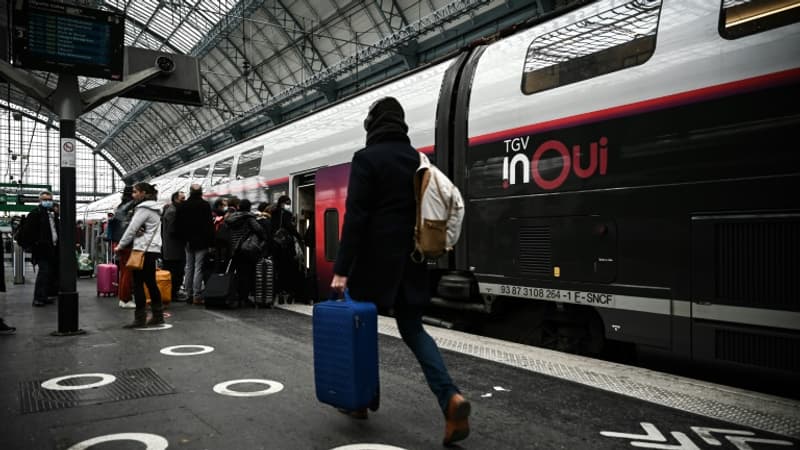At the stations, not all travelers will be able to take their train in the coming days. Another strike at the SNCF for Christmas? Not really: in fact, strikes by SNCF agents are far from systematic during the end-of-year celebrations. They are even relatively rare: so far traffic has only been interrupted twice at this time of year. The last time was in 2019, in the midst of the long social conflict linked to the pension reform, and then you have to go back much further in time, in 1986, when the railway workers opposed the new salary table.
Épinal’s image of the SNCF Christmas strike draws from the frequent social movements that take place in December, a key moment in wage negotiations, and especially from the strike notices presented on numerous occasions by the unions. Most of the time it is lifted at the last minute in favor of the surrender of the management or the government, as in 1995. In addition, the calendar is not always chosen by the unions. In 2019, for example, it was the presentation of the pension reform by the government that triggered the social movement.
Calls to “surrender”
Even so, apart from Christmas, the railway strikes are generally concentrated on the big holiday weekends.
“It doesn’t make sense to go on strike on a day when it wouldn’t have any impact,” he sums up. Specifically: going on strike at the time of the great transhumance of parties or vacations is the way to put maximum pressure on management to negotiate in their favor. Otherwise, the tool loses its usefulness.
Given the discontent of users, calls to protect the Christmas season have multiplied in recent days: the government spokesman, Olivier Véran, again asked controllers on Thursday to “resign” from their strike. Ensuring the defense of the right to strike and, at the same time, asking that traffic not be interrupted seems, however, a “contradictory commandment”, analyzes Stéphane Sirot. The strikers, if they lose several days’ wages, hope that the move will be useful in return.
outdated unions
This time, however, the unions seem upset by the date chosen for the mobilization of the controllers, although it was possible thanks to their own notices. They fight to frame this social conflict, which started from the base without union initiative. “This is not the first time this has happened, but it is a practice that is gaining ground”, in particular thanks to social networks, specifies Stéphane Sirot, citing the example of the TGV maintenance workshops in 2019, where the spontaneous stoppage of the technicians had disturbed traffic in the west of the country.
In this context, should we expect to experience more uncontrollable strikes at Christmas? At the head of the CFDT, Laurent Berger publicly expressed his disagreement, without effect on the determination of the strikers.
Without a direct interlocutor, it is difficult to carry out conclusive negotiations, as the example of the yellow vests in 2018 reminds us. But the unions have not completely lost their touch, they are even more than ever “at the center of the game”. shade Stephane Sip. Even if it is only to present the notice of strike, essential to guarantee its legality, and to carry out collective negotiations.
Source: BFM TV


